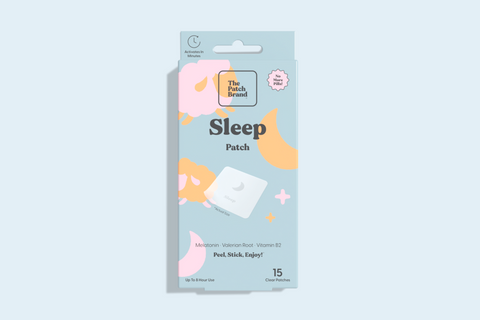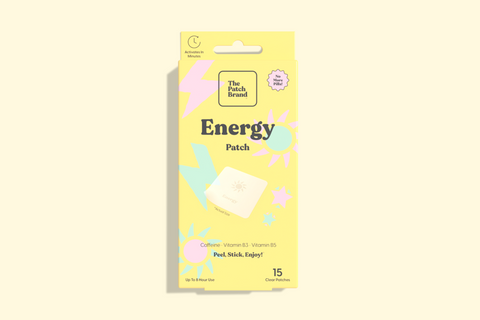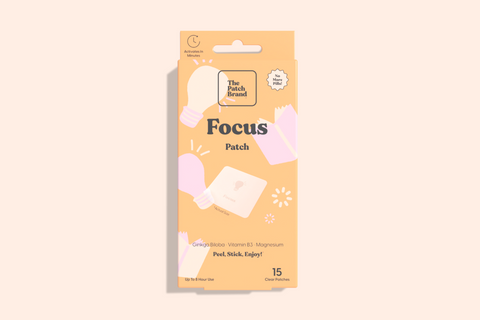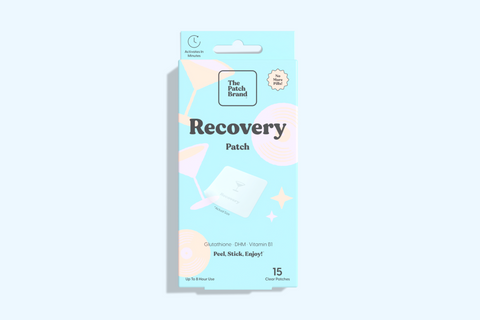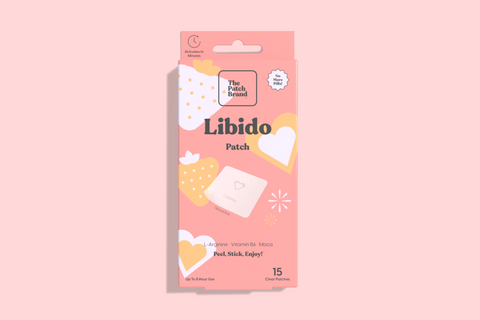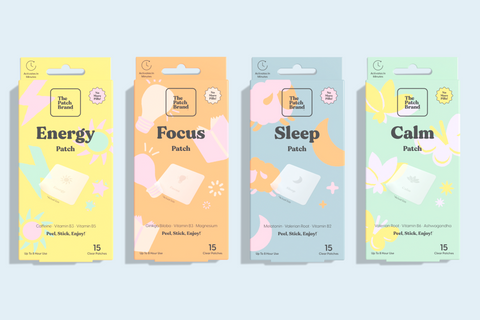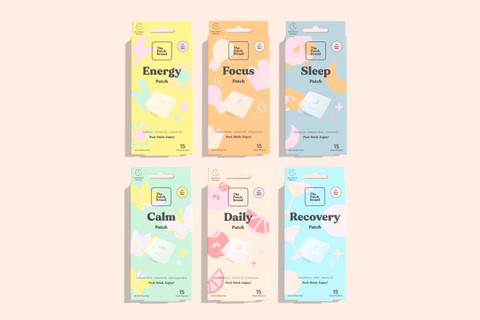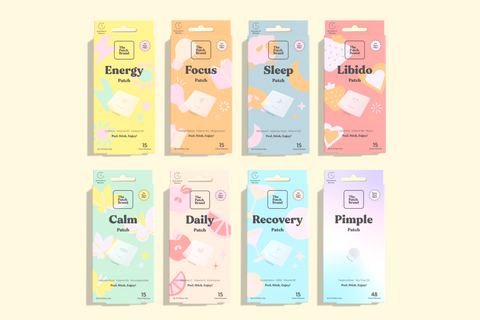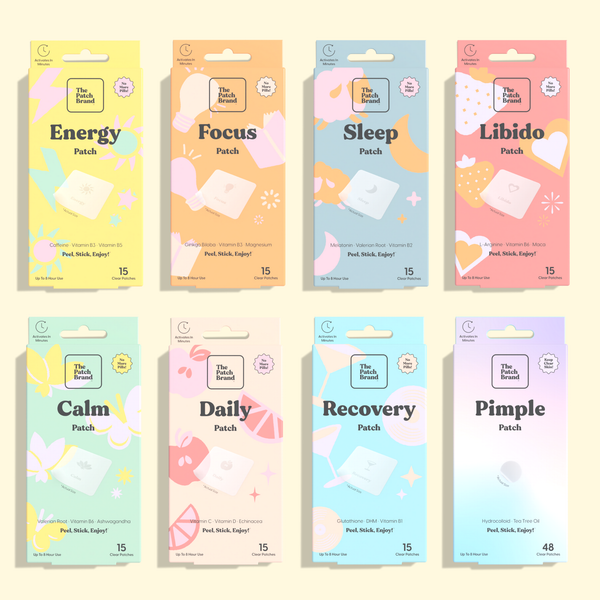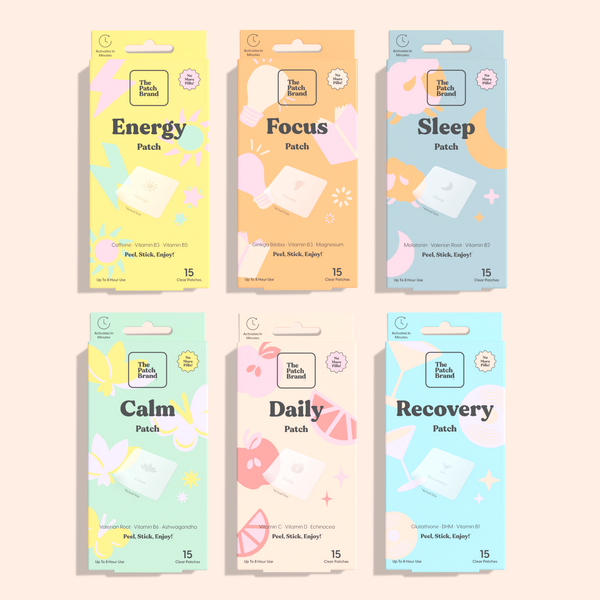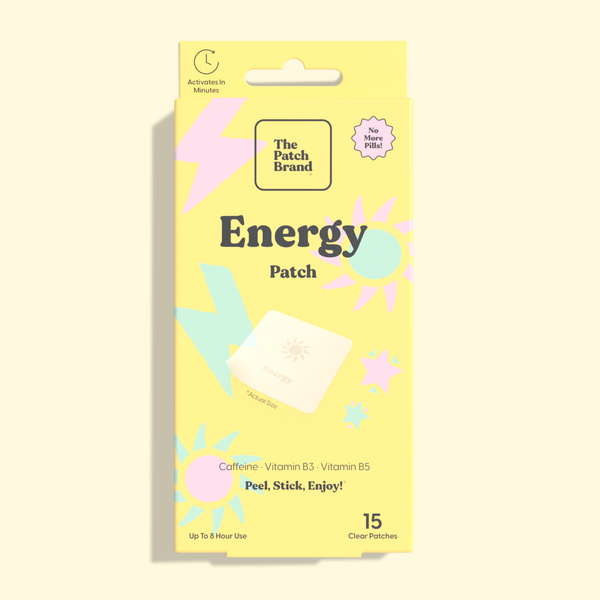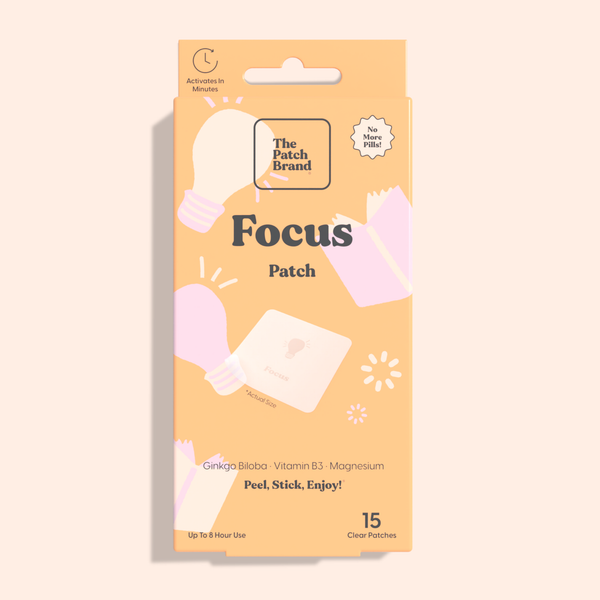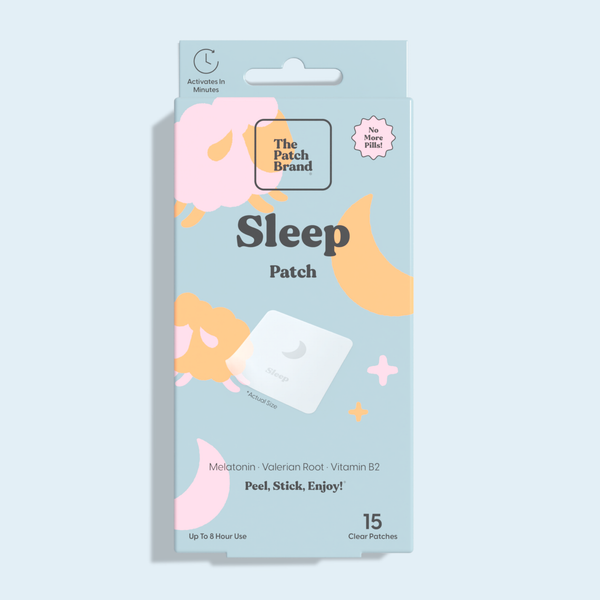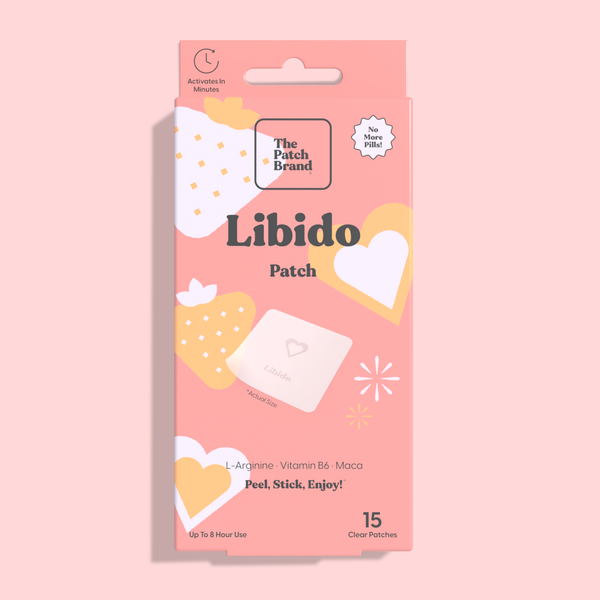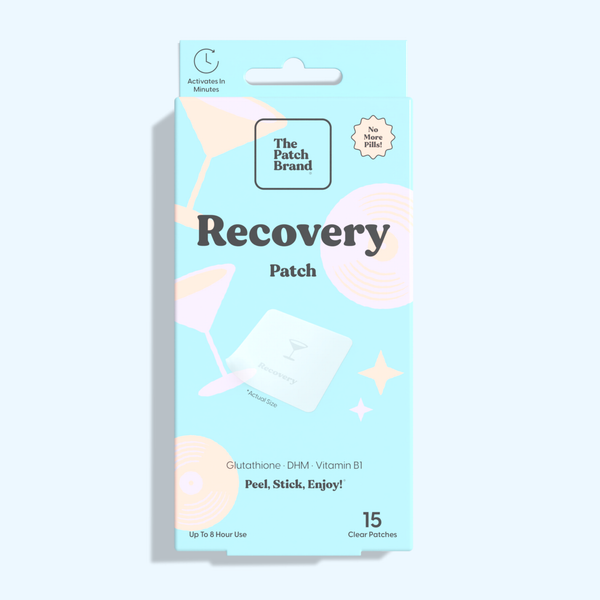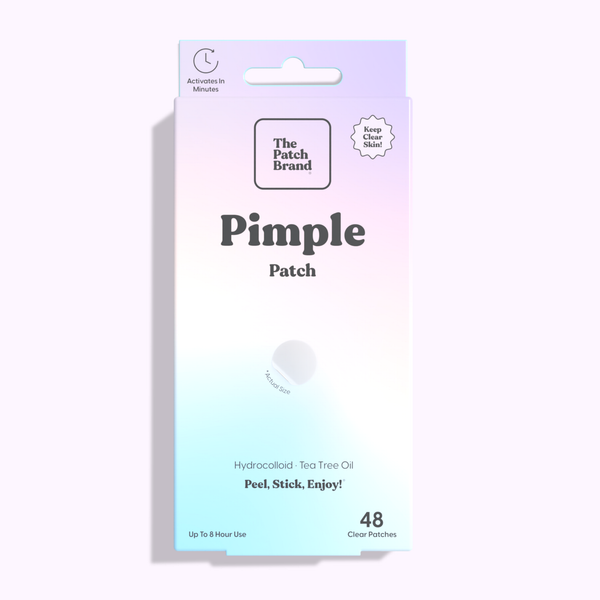Sleep is an essential aspect of our lives. Yet, many people struggle to get quality sleep consistently, turning to natural solutions like vitamins to help improve their sleep patterns. This blog post dives into the world of
vitamins for sleep, providing a comprehensive guide on their benefits, how to incorporate them into your sleep routine, and the growing trend of
sleep patches. Let's journey together through this fascinating world of natural sleep enhancers.

Understanding the Importance of Sleep
A significant part of our overall health and well-being depends on getting a good night's rest. The body's recovery processes are heightened during sleep, which allows cells to repair and regenerate. Moreover, sleep significantly enhances cognitive function, influencing our ability to think, concentrate, and make decisions. A well-rested mind is more resilient to stress, leading to a more balanced mood and overall sense of happiness. When we consistently achieve sufficient and high-quality sleep, we are better equipped to manage the demands of daily life, both physically and mentally.
Sleep disorders, such as insomnia and sleep apnea, present serious challenges to our well-being. Insomnia, characterized by difficulty falling or staying asleep, often leads to daytime fatigue and impaired concentration. Over time, chronic insomnia can increase the risk of developing mental health issues such as depression and anxiety. Sleep apnea, on the other hand, involves interrupted breathing during sleep, which can result in fragmented sleep and reduced oxygen levels in the blood. Both conditions have been linked to a higher risk of developing health problems such as heart disease, diabetes, and hypertension. Recognizing and addressing these disorders is crucial to prevent them from affecting one's quality of life and long-term health.
Improving sleep quality is crucial for overall well-being and has far-reaching implications for physical and mental health. Given the significant impact of sleep on daily functioning, adopting effective strategies to enhance sleep is paramount. These strategies can range from simple lifestyle changes to more structured interventions. Below are several key approaches that individuals can adopt to improve their sleep quality:
-
Consistent Sleep Schedule: Consistency helps regulate the body's internal clock, making it easier to fall asleep and wake up naturally. A regular schedule enhances sleep efficiency, reduces sleep disruptions, and helps align sleep patterns with natural circadian rhythms. Moreover, maintaining a routine creates a structured framework that supports other healthy sleep practices, such as avoiding late-night meals or screen time. By prioritizing a regular sleep schedule, individuals can significantly enhance their sleep quality and overall well-being.
-
Relaxing Bedtime Routine: This routine can include activities such as reading, taking a warm bath, or practicing relaxation techniques like deep breathing or meditation. Creating a calming pre-sleep ritual helps transition the mind and body from the day's activities to a restful state. It also reduces the influence of external stressors that might interfere with falling asleep. Additionally, a consistent bedtime routine establishes a psychological association between certain activities and sleep, making it easier to drift off once in bed.
-
Avoiding Caffeine Before Bed: Caffeine is a stimulant that can interfere with the body's ability to fall asleep and stay asleep. It blocks adenosine, a chemical that promotes sleep, leading to increased alertness and potential sleep disturbances. The effects of caffeine can last several hours, so it's advisable to avoid consuming it in the late afternoon or evening. Choosing non-caffeinated alternatives in the evening, such as herbal tea or warm milk, can promote relaxation. By being mindful of caffeine intake, individuals can improve their sleep quality and avoid unnecessary disruptions.
-
Comfortable Mattress: A comfortable mattress is fundamental to good sleep quality. An unsuitable mattress can lead to discomfort, restlessness, and even pain, disrupting sleep. Investing in a mattress that provides proper support and aligns with individual comfort preferences is essential. Different types of mattresses cater to various needs, such as memory foam for pressure relief or hybrid mattresses for balanced support. In addition to the mattress, bedding materials, such as pillows and blankets, also contribute to overall comfort.
-
Quiet, Dark, Cool Bedroom: Noise, light, and temperature can significantly impact sleep quality. Minimizing noise, using blackout curtains, and maintaining a cool room temperature can create an optimal sleep environment. White noise machines or earplugs can block out disruptive sounds, while eye masks or curtains can eliminate unwanted light. Keeping the bedroom cool, ideally around 60-67 degrees Fahrenheit, helps regulate body temperature for better sleep.
-
CBT-I for Insomnia: CBT-I focuses on changing unhelpful thoughts and behaviors related to sleep, addressing the root causes of insomnia. This therapy typically involves a structured program that helps individuals develop healthy sleep habits and manage stressors that impact sleep. CBT-I combines cognitive techniques, such as reframing negative thoughts about sleep, with behavioral strategies, such as sleep restriction and stimulus control.
-
CPAP for Sleep Apnea: Continuous Positive Airway Pressure (CPAP) therapy is a widely used treatment for sleep apnea, a condition characterized by repeated breathing interruptions during sleep. CPAP involves wearing a mask connected to a machine that delivers a steady stream of air, keeping the airways open and preventing apnea events.
Implementing these strategies, tailored to individual needs and preferences, can greatly enhance sleep quality and contribute to overall health and well-being. By adhering to the strategies above, individuals can create a foundation for restful sleep.
The Relationship Between Vitamins and Sleep
Vitamin D
This fat-soluble vitamin is synthesized in the skin upon exposure to sunlight, making sunlight a primary source. Additionally, it can be obtained through dietary sources such as fatty fish, fortified foods, and supplements. Beyond its well-known role in bone health, Vitamin D plays a critical role in regulating sleep patterns. Deficiency in Vitamin D may contribute to sleep disorders, including insomnia and disrupted sleep cycles. This is because Vitamin D receptors and enzymes are present in areas of the brain involved in sleep regulation. Ensuring adequate Vitamin D levels can enhance sleep quality, as it helps modulate the body's internal clock and influences the sleep-wake cycle. Incorporating Vitamin D into one's diet or using supplements, particularly for those with limited sunlight exposure, can be an effective strategy for improving sleep and overall health.
B Vitamins
B vitamins play a crucial role in various bodily functions, including supporting healthy sleep patterns. Among these, vitamins B6, B9, and B12 are particularly significant for their impact on sleep. Each of these vitamins offers unique benefits that contribute to restful sleep and overall well-being. Below, we discuss how each of these B vitamins supports sleep quality and how to incorporate them into your diet:
-
Serotonin Production: Vitamin B6, also known as pyridoxine, is integral to serotonin production, which is a neurotransmitter that influences mood and sleep. B6 facilitates the conversion of the amino acid tryptophan into serotonin. Serotonin is then converted into melatonin, the hormone that regulates the sleep-wake cycle. Vitamin B6 can be found in foods like bananas, chickpeas, and chicken breast. Consuming these foods can help ensure sufficient B6 intake, leading to improved serotonin and melatonin production, which supports restful sleep and mood stability.
-
Mood and Sleep Quality: Vitamins B9 (folic acid) and B12 (cobalamin) are crucial for mood stability and reducing the risk of sleep disorders. These vitamins are essential for brain function and neurotransmitter regulation, which impacts mood and sleep quality. Low levels of B9 and B12 are linked to depressive symptoms and poor sleep. By maintaining adequate levels of these vitamins, individuals can enhance their mood and sleep stability. Foods rich in B9 include legumes and citrus fruits, while B12 is primarily found in animal products like fish and dairy. Including these foods in the diet can help prevent deficiencies that may affect mood and sleep.
-
Dietary Sources: Incorporating B vitamins into the diet is crucial for sleep quality and overall health. Whole grains, leafy greens, and lean meats are excellent sources of B vitamins, including B6, B9, and B12. Whole grains like brown rice and oats provide B6, while leafy greens such as spinach and kale are rich in B9. Chicken and turkey offer B6 and B12. Including these foods in meals ensures a balanced intake of B vitamins, supporting various bodily functions, including sleep regulation. A varied diet rich in these foods promotes overall well-being and helps prevent sleep disturbances related to vitamin deficiencies.
By understanding the benefits of B vitamins and how to incorporate them into one's diet, individuals can take proactive steps toward fostering restful sleep and enhancing their overall well-being. These vitamins are vital components of a healthy lifestyle, and ensuring sufficient intake can lead to improved mood, better sleep, and enhanced quality of life.

Magnesium
This mineral has a calming effect on the nervous system, reducing anxiety and promoting relaxation, which is essential for achieving restful sleep. Foods rich in magnesium, such as nuts, seeds, leafy greens, and whole grains, can be included in the diet to maintain adequate levels. For those who have trouble meeting their magnesium needs through diet alone, supplements are available. Ensuring sufficient magnesium intake can improve sleep quality, enhance relaxation, and contribute to overall health by supporting various physiological processes.
Melatonin
Melatonin is a hormone that plays a pivotal role in regulating sleep. It is produced by the pineal gland in the brain and is released in response to darkness, helping to signal to the body that it is time to sleep. Melatonin levels typically peak during the night and decrease during the day, aligning with the body's natural circadian rhythm. This hormone is often used in supplement form to address sleep disorders, such as insomnia or jet lag, by providing an external source of melatonin to adjust the body's internal clock.
Melatonin supplements are available over-the-counter and can be particularly helpful for individuals who struggle with maintaining a consistent sleep schedule. Additionally, melatonin has antioxidant properties and can contribute to overall health. It's important to use melatonin supplements under the guidance of a healthcare provider, as the timing and dosage can significantly affect their efficacy. Proper use of melatonin can enhance sleep quality and help manage disruptions to the sleep-wake cycle.
Choosing and Incorporating Sleep-Promoting Vitamins
Choosing the most suitable vitamins for improving sleep can indeed be a daunting task, considering the wide array of choices. It is crucial to take into account several factors when making a selection, such as the particular sleep problems you are experiencing, your overall health condition, and the potential interactions these vitamins may have with any medications you are currently taking. Consulting with a healthcare professional or a registered dietitian can provide valuable guidance in making an informed decision.
Once you have identified the appropriate vitamins for your sleep needs, the next step is to incorporate them into your sleep routine effectively. This may involve taking the recommended supplements at a specific time of day or modifying your diet to include foods that are naturally rich in the selected vitamins. Consistency is key to reaping the potential benefits of these vitamins for sleep improvement. Establishing a consistent routine and adhering to it diligently will likely yield better results over time. Remember that individual responses may vary, so it may take some time to determine the optimal dosage and timing that works best for you. Patience and persistence are key when integrating vitamins into your sleep regimen.
An Overview of How The Best Sleep Patches Work
With the advent of technology, we are witnessing the rise of new methods to administer vitamins for sleep, including the use of a
sleep patch. These
patches for sleep are designed to slowly release vitamins and other sleep-promoting substances into your body throughout the night. They've become popular due to their ease of use and the sustained release of ingredients they provide.
On one hand, a patch for sleep offers a convenient and efficient way to deliver sleep-enhancing substances. On the other hand, patch sleep may not be suitable for everyone, especially those with sensitive skin or certain medical conditions. It's crucial to use any sleep aid patch responsibly.

The Importance of Research in Sleep Health
Staying up-to-date with the latest research on sleep health is essential. New findings help dispel misconceptions and myths surrounding vitamins and sleep, leading to a better understanding of their mechanisms and effects. Keeping informed allows for a more accurate comprehension of the role vitamins play in promoting optimal sleep. With advancements like
sleep vitamin patches and new findings on the effects of various vitamins on sleep, it's an exciting time to explore natural sleep solutions. Being informed allows us to make the best decisions about our health and find
the best sleep patches or vitamins that work for us.
Vitamins can be an effective way to enhance sleep quality and combat sleep disorders. The use of vitamins, and particularly the emerging trend of these best sleep patches, offers a promising solution for those seeking natural sleep aids. However, it's essential to make these decisions based on solid knowledge and preferably under the guidance of a healthcare professional. After all, good sleep is a cornerstone of good health, and it's worth investing our time and effort into achieving it.



